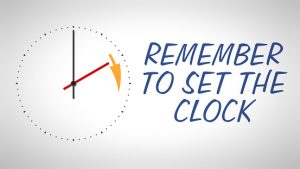
Dr. Yosef Krespi, director of the Center for Sleep Disorders at Lenox Hill Hospital, said, “It’s well known that a small shift in time can have an impact on our body clock and our health, and the time change may cause sleepiness and fatigue. When time shifts, remember your body has a clock, too.”
Although the time change isn’t as greatly felt in younger, healthier individuals, those of older age or with health conditions may feel the effects of springing ahead much more. Dr. Krespi added, “Individuals with pre-existing sleep conditions such as insomnia or sleep apnea will have even more difficulties in adjusting to the change. The impacts of Daylight Saving Time are likely related to our body’s internal circadian rhythm, the molecular cycles that regulate our brain when we feel awake and when we feel sleepy.”
Here are some suggestions and tips to better help cope with the time change for springtime.
- Adults should wake up 15 minutes earlier for a few days after the time change and avoid napping during the weekend. Exercising midday can help give you a boost of energy to make it through the day.
- Spend at least one hour in the sunlight if possible on Sunday to help your body’s natural clock, which runs primarily on daylight and nighttime changes.
- Avoid stimulating substances like caffeine and alcohol
- If after the time change you feel tired, take an afternoon nap, but for no longer than 30 minutes.
- Ensure your bedroom is conducive to proper sleep.
- Shorten young children’s naptimes or else they will feel it’s too early for their regular bedtime.
These tips will better help you adjust to daylight saving time and avoid health complications.